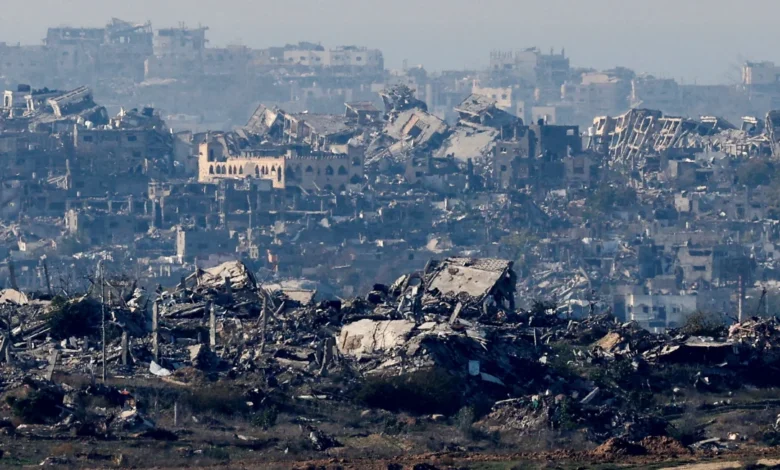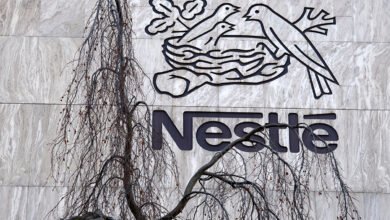
UAE-US Discuss Critical Post-War Gaza Security Framework
Gaza’s postwar governance remains one of the most important diplomatic challenges facing the Middle East today. Regional powers must carefully evaluate their roles to shape this conflict-torn territory’s future, and the United Arab Emirates has become a key player in these discussions.
The UAE has engaged in talks about its postwar Gaza role. However, several conditions need to be met before any real involvement can begin. These diplomatic conversations reflect wider regional concerns about stability and humanitarian needs. The Emirates takes a measured approach that shows the fine line between accepting regional responsibility and ensuring practical solutions for Gaza’s lasting peace.
UAE’s Strategic Position
The UAE now stands at a vital diplomatic crossroads in shaping Gaza’s post-war governance. UAE officials have held private talks with Israel and the US about taking a temporary governance role to rebuild and manage Gaza.
The UAE has become the biggest provider of humanitarian aid to Gaza. Through its ‘Gallant Knight 3’ operation, it has sent 33,000 tons of essential supplies using 319 planes, seven cargo ships, and over 1,240 trucks. On top of that, it has built six water desalination plants that produce 1.2 million gallons daily and help 600,000 Palestinians.
UAE leaders have set clear requirements to get involved:
- A Palestinian state must be created
- A capable Palestinian government must be formed
- No plans that could hide Israeli presence will be accepted
- A complete strategic plan must be put in place
The UAE carefully balances its diplomatic relations as one of the few Arab countries that has ties with Israel. So, this special position lets the UAE push for most important changes in the Palestinian Authority while keeping open lines of communication with everyone involved.
UAE’s strategy focuses on creating a “temporary international mission” to help with the humanitarian crisis. This approach matches the country’s larger goal of building lasting peace in the Middle East while keeping strong relationships with both Israel and supporting Palestinian hopes.
Key Conditions for Involvement
The UAE has laid out clear conditions that must be met before taking any governance role in Gaza’s future. The Emirates wants “significant reform of the Palestinian Authority, its strengthening, and the establishment of a credible roadmap toward a Palestinian state”.
The UAE’s prerequisites demand:
- A formal invitation from a new, credible, and independent Palestinian Authority prime minister
- Implementation of substantial reforms within the Palestinian Authority
- An explicit commitment to the two-state solution from Israel
- Clear leadership role for the United States
The UAE proposes setting up a temporary international mission in Gaza, which would need a formal invitation from the Palestinian government. This mission would tackle the humanitarian crisis, establish law and order, and build the foundations for governance.
The Emirates suggests former Prime Minister Salam Fayyad, a U.S.-educated economist, could lead a reformed Palestinian Authority. Beyond these political requirements, the UAE also thinks over using private military contractors as part of a post-war peacekeeping force.
These elements form the core of any successful post-Gaza plan according to the UAE. The international mission would quickly respond to the humanitarian crisis, establish law and order, and work to reunite Gaza and the West Bank under a single, legitimate Palestinian Authority.
Diplomatic Challenges
The UAE faces tough diplomatic hurdles about its role in governing Gaza after the war. The Emirates must carefully balance its regional partnerships and what the international community expects from them.
The UAE must overcome these most important obstacles:
- Managing relations with Hamas, which the UAE has classified as a terrorist organization
- Navigating complex regional dynamics with Iran-linked groups
- Balancing ties with Israel while supporting Palestinian aspirations
- Their own citizens’ views about normalization
The UAE believes working together internationally works better than acting alone. The Emirates has diplomatic ties with Israel through the Abraham Accords. Yet they face growing pressure from regional players and their citizens about their position on Gaza.
The humanitarian crisis adds another complex layer. The UAE has sent 39,756 tons of urgent supplies to Gaza through 8 ships, 1,271 trucks, and 337 flights. In spite of that, they struggle to turn this humanitarian support into real political influence.
Lana Nusseibeh, UAE’s ambassador to the UN, emphasizes that “irreversible progression” toward a two-state solution matters deeply to get regional support for reconstruction. This stance aligns with the Arab world’s shared belief that lasting peace depends on real progress toward Palestinian statehood.
UAE takes a measured stance toward Gaza’s post-war governance that shows its dedication to regional stability. The country has emerged as a key provider of humanitarian aid. Yet it sets clear terms to get more involved. These terms focus on reforming the Palestinian Authority and making real progress toward a two-state solution. They also want legitimate governance structures in place.
The UAE’s diplomatic position gives them an edge. Their strong ties with both Israel and Palestinian authorities are a great way to get things moving. Many obstacles still block the path to a concrete governance role. The Emirates show they’re ready to help within proper frameworks through their focus on working with other nations and their major humanitarian work.
Meeting specific conditions and dealing with regional issues will shape what happens next. Everyone’s interests need attention to make this work. It takes ongoing diplomatic work and a steadfast dedication to what Palestinians want. The UAE’s position reflects how the region thinks about creating lasting peace through real political progress and better governance.






